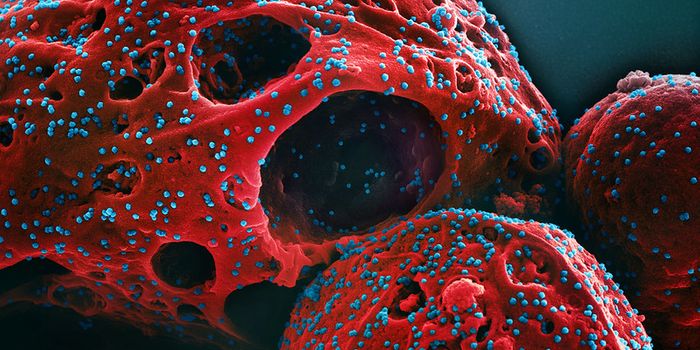The gut microbiome is a critical part of human health. Research has shown that many types of bacteria may reside there. But other microorganisms live there too, like archaea, fungi, and viruses. New research has investigated the viruses in the gut microbiomes of humans, and added a trove of data to what was known about the genomes of viruses that inhabit the human gut. The more we can learn about all the microbes in the gastrointestinal tract, that easier it will be to discern how they can help or harm our health.
“The human gut virome is still vastly underexplored and many novel viruses are to be discovered, some of which could have important influences on processes impacting human health and disease,” said senior study author Jelle Matthijnssens, Ph.D., a professor at KU Leuven in Belgium.
The scientists behind this study also want to shed light on the connections between the gut microbiome and the human liver. The gut-liver axis could be involved in the development of liver diseases like alcoholic or non-alcoholic fatty liver disease, which the MicrobLiver project aims to study. This work could help researchers learn more about how to treat these disorders.
“In the framework of the MicrobLiver project, we aimed to generate a catalogue of virus genomes, which could be used in subsequent studies on several cohorts of people with early stages of alcoholic and non-alcoholic fatty liver disease,” said Matthijnssens.
Fecal samples are commonly used to assess the composition of gut microbiomes. In this work, the researchers collected 254 fecal samples from 204 Danish volunteers. In that group were fifty people aged six to eighteen with a BMI in the high range, and fifty sex- and age-matched people with a BMI in the normal range. There were also groups of adults aged 34 to 76, one of which had alcohol-related liver disease and the other, a sex-and age-matched cohort of healthy individuals. Viruses in the samples were isolated using a technique called the Novel Enrichment Technique Of Viromes (NetoVIR) protocol, and the genomes of those viruses were sequenced.
Partial sequences were obtained from 12,986 viruses, revealing 190,029 viral genes. The data that was generated from this study has been called the Danish Enteric Virome Catalog (DEVoC).
This research indicated that there were some viral genomes found in several healthy subjects; the genomes of 39 viruses were identified in at least ten healthy people. When compared to public databases, it was found that two viral genomes are common around the world. Both are viruses that infect bacteria, called bacteriophages. The first could be found in about 20 percent of subjects, it was a crAss-like phage. The second was a virus that infects Bacteroides dorei bacteria, called LoVEphage (for Lots of Viral Elements), which was found in about 14 percent of subjects.
“Our findings further emphasize that the human gut virome is still understudied and that many novel viruses are to be discovered. Especially the identification of novel phages shared by people across the globe is of interest to be studied in more depth,” said Matthijnssens.
The researchers are planning to study the viromes of patients with alcoholic and non-alcoholic fatty liver disease, in the hopes of finding biomarkers of disease that could be used as diagnostic tools or help guide treatments.
Sources: American Society for Microbiology, mSystems









